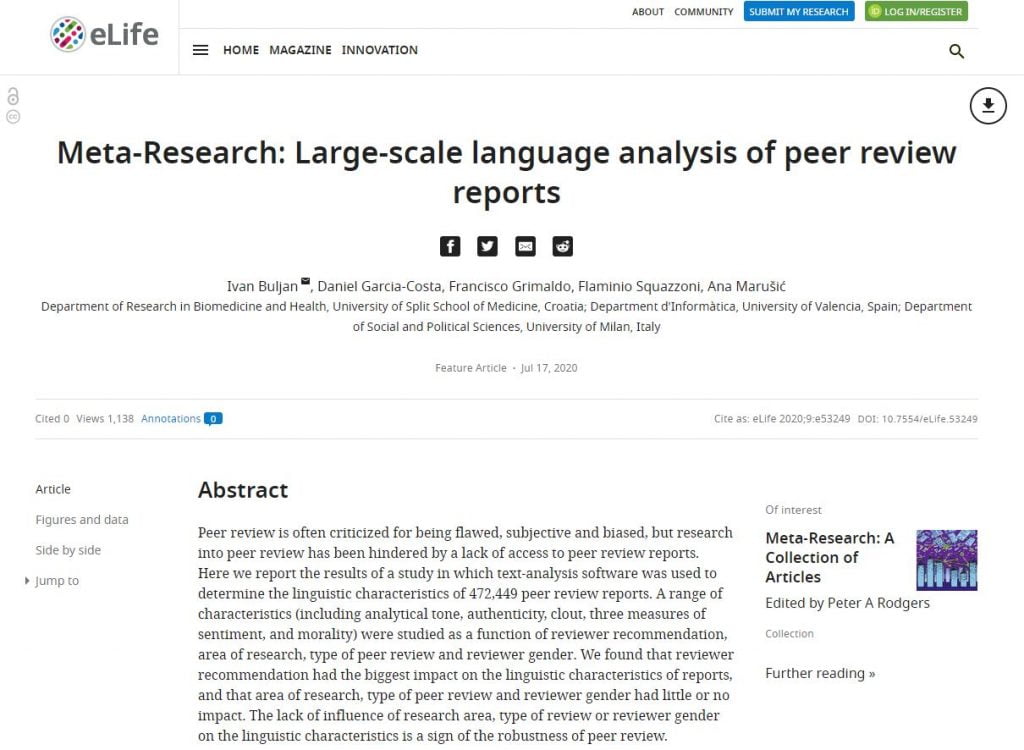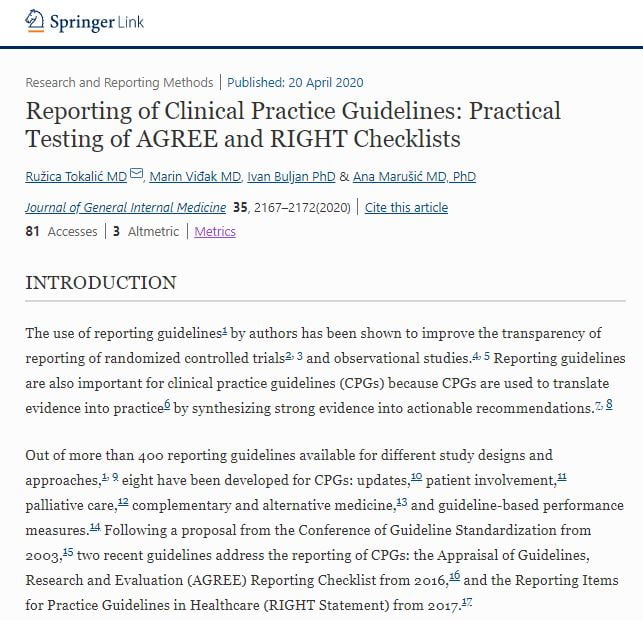prof. dr. sc. Ana Marušić
: Professionalism in Health: Decision Making in Practice and Research – ProDem

| Project code: IP-2019-04-4882 |
| Institution: University of Split School of Medicine |
| Project duration: 01 January 2020 – 31 December 2023 |
| Project website |
The ProDem project deals with researching decisions in health care, both in practice and in science. In studying decisions taken in health care, especially in practice, we have focused on tools that help develop and apply guidelines for clinical practice. We published a paper in the Journal of General Internal Medicine (impact factor: 4,606). This study contains the first-ever comparison of two guidelines for reporting clinical guidelines, RIGHT and AGREE Reporting, which were treated as two diagnostic tools. We compared their content and analysed the language in which they were written. Then we applied them to a set of Croatian and European clinical guidelines, to see if their assessment of the published clinical guidelines is similar. RIGHT and AGREE Reporting cover similar content, but despite that, almost one third of particles in the RIGHT list do not cover the content of the AGREE Reporting List. In the opposite direction, this is the case with 11% of the particles. RIGHT and AGREE Reporting have a high correlation in assessing the published guidelines, but clinical guidelines have largely met the RIGHT requirements, which may indicate that RIGHT covers a wider range of problems relevant for contemporary guidelines. AGREE Reporting tool is more suitable for authors of clinical guidelines, while RIGHT could be more appropriate for readers and end users of clinical guidelines. In further research, we will examine the language of recommendations in clinical guidelines and how it can influence decision making and safety in this process.
In the study of decisions taken in science, we focused on studying decision-making in the review procedure in journals and during the evaluation of scientific projects. In cooperation with a research group from the University of Valencia (Spain), we investigated the features of the review procedure on a sample of almost one million reviews in journals published by Elsevier. The paper describing this research was published in eLife journal (impact factor: 6.830). The peer review procedure is an important part of the process of publishing scientific work, because it makes written research undergo additional control by independent experts in the field in which the research was conducted. Since the decision whether a paper will be published or not is made based on the review procedure, it is important for editors and authors to assess whether the reviewer’s decision regarding the quality of a scientific article has been taken objectively. If the review reports differed according to characteristics of the reviewers that have no direct link with the assessment of the quality of the article, there would be a chance that the decision was made in a biased manner. In order to assess whether there is a difference in the texts of the review reports, we analysed about half a million reports using different programs that analyse the text according to the number of words and percentages of words related to objectivity, positive emotions and morality. The analysis showed that texts were mostly written using a high percentage of words related to objectivity, and low use of words related to morality. The percentage of words related to positive emotions differed in view of the reviewers’ decision on the quality of the article.
The highest percentage was used in cases where the reviewer considered that the paper was of high quality and should be published. This percentage decreased with the amount of additional work needed in order to improve the paper. The lowest level of words associated with positive emotions is present in cases where the reviewer decided to reject the paper. Our research, although limited to text analysis only, shows that the review reports are written in objective style, and that a review decision, and not factors such as gender or scientific discipline, affect the style of writing. Further research will focus on using a machine learning approach in places where the process can be automated so that algorithms would make a decision based on written reports.


Ana Marušić is a Full Professor and Head of the Department for Biomedicine and Health Research of the University of Split School of Medicine. She holds the title of Honorary Professor at the University of Edinburgh. She is the Editor-in-Chief of the Journal of Global Health, Council Member of the COPE Association, Board Member of the EQUATOR Network, former President of international associations EASE, CSE and WAME, and former member of Board of Editors for ICMJE. She is the founding member of Cochrane Croatia. Her current research area is the quality of evidence in medicine and different methodological approaches to enhancing credibility, transparency and integrity of scientific research.

